Early Childhood Educators
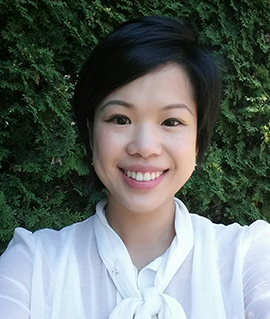
MISS TANIA
AQUILA MANAGER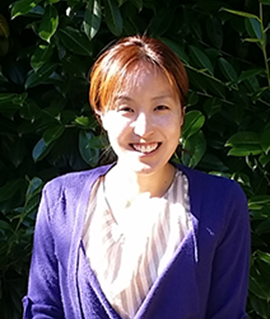
MISS YUMI
ROCHDALE MANAGER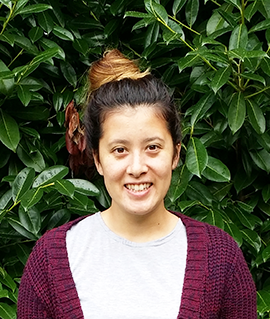
MISS ALISON
ECE TEACHER
MISS H
ECE TEACHER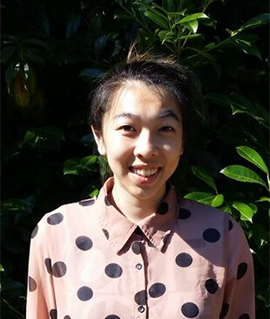
MISS JOANNE
SUBSTITUTE TEACHER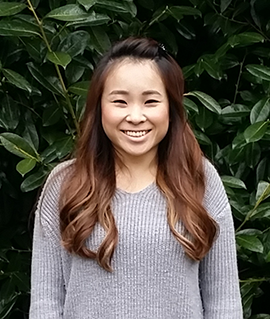
MISS KAYOKO
SUBSTITUTE TEACHERMISS TANIA LAM
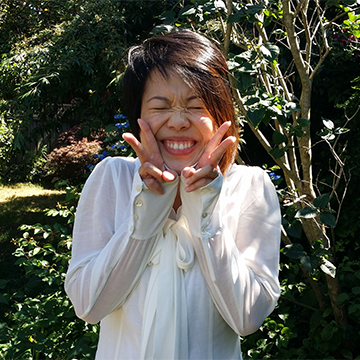
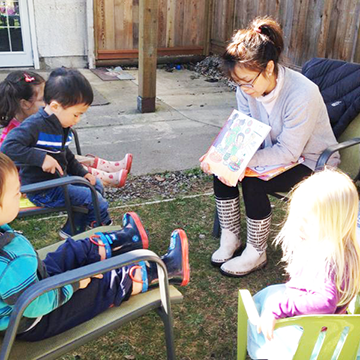
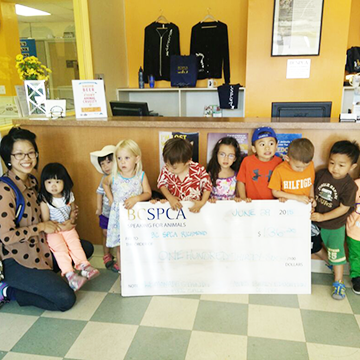
"Childhood to me is a completely unique time period where children are coming up with whimsical wonders and their imaginations are bursting with creativity."
This fascinating ability that only children seem to possess for a certain time in their life is one of the many reasons why my passion lies in the field of early childhood education (ECE).
The major element I am drawn to in ECE is a child's mind. Even having worked with children of all ages for over ten years now, I am still always surprised by the fresh perspectives a child brings to information we adults often take for granted. For instance, working with a five year old, I asked why she thought her birthday landed on that particular day. She explained very seriously to me, "Santa decided it!" I laughed with joy and excitement when I heard her thoughts. Even though her understanding of birthdays was incorrect, I could not help but smile at her incredible thinking. What goes on in a child's mind and how they are making sense of this complex world are questions I am always wondering and wanting to unravel. Their lens in life is so unique – to see through it, even for just a brief moment is so exciting!
During my Bachelors, I had the privilege to study biopsychology. I was fascinated with how the human brain, its hormones, chemicals, neurotransmitters, and connections influenced human behaviour. As I continue my career in early childhood education, I am always seeking to learn more about the child’s brain. What is happening during a tantrum? What affects are technology having on children’s brain development? What is happening as they learn to problem-solve and resolve conflicts? How can this knowledge of the brain guide my discipline practices? Like children, I, along with the other teachers at Aves, am always looking to grow and professionally develop so that I can become a better teacher.
What I look forward to most at Aves Early Education Centre is learning with and from children. I am a firm believer in providing as much educational stimuli to a child during early childhood as possible to capitalize on their brain's dynamic long-term developmental changes. However, I believe the manner in which this is presented is critical. Thus, I follow the practice of co-constructing knowledge rather than pure transmission, and creating an environment that is conducive to children developing a positive and thoughtful attitude towards learning. These practices are derived from the philosophies Reggio Emilia, Montessori, and Tools of the Mind (inspired by Lev Vygotsky), which I studied during my Master of Education in Early Childhood Education at the University of British Columbia. You can learn more about each of these philosophies by clicking here.
MISS YUMIKO IZUMI
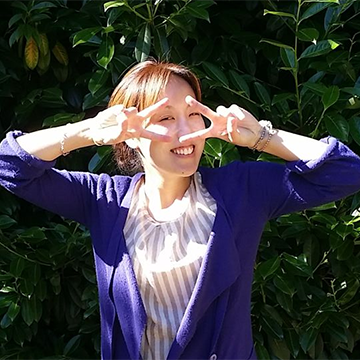
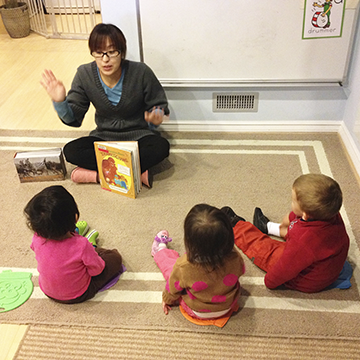
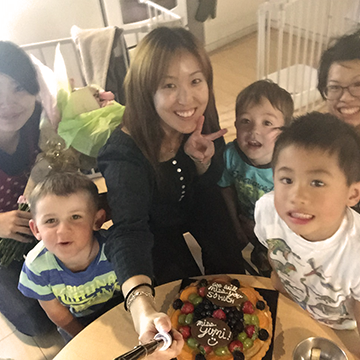
"Children are beautiful, strong individuals capable of many things if presented in a thoughtful way. "
I see all children as unique and ambitious with lots of potential. I believe early childhood education is important especially from a young age because children deserve an education that challenges and stimulates them to discover and learn more about the world around them. Children’s minds are always ready to create, analyze, and explore. As teachers, we can challenge, support, and guide each child so they are ready to apply themselves in a world full of opportunities.
My early childhood education studies began after I discovered Maria Montessori while reading an article. It was Maria Montessori’s materials and ideas that inspired me the most about her teaching practices. I noticed that each and every one of her materials were carefully designed to create an educational and meaningful learning experience for any child who utilizes them. I wanted to learn more about her and the field of early childhood education, which is why I obtained my International Montessori Teaching Diploma from NAMC, as well as obtained my infant-toddler and special needs certification at Langara College. Working specifically with infants and toddlers has taught me so much about myself and helped me become a stronger and better individual. For example, working with infants and toddlers has increased my levels of patience and I can better assess and meet people’s needs. I will always enjoy working with infants and toddlers because there is never an ordinary day. Each day is filled with surprises, new discoveries and being able to witness each child’s unique developmental milestone, makes teaching a very rewarding career.
I also believe the three educational philosophies, Reggio Emilia, Montessori, and Tools of the Mind, provide teachers with a unique approach to working with infants and toddlers. For example, the Reggio Emilia approach encourages teachers to create environments that allow children to hypothesize, challenge their curiosities, and self-discover the world around them. For infants and toddlers, this can lead to greater levels of autonomy, self-esteem and self-confidence.
With the Montessori approach, one of the major focuses for infants and toddlers would be “there is always a place for everything”. To execute this principle, I would explain to infants and toddlers that everything has a proper home. For example, infants and toddlers playing in the make-believe kitchen would be encouraged to place the dishes away in the dish area, to put away the pretend food in its proper place, and to organize the pretend utensils appropriately. In doing so, infants and toddlers develop the building blocks to strong organizational skills and learn what is expected of them in real life.
Tools of the Mind advocates activities that promote and encourage self-regulation, which involves a child’s “ability to pay attention, remember on purpose, plan one’s actions, reflect on one’s thinking, and cooperate and act empathetically toward peers.” (Tools-Preschool Brochure 2015) For infants and toddlers, I would incorporate a modified version of Graphics Practice, Buddy Reading, Venger Drawing, and Play Planning so that it is developmentally appropriate for infants and toddlers, but also still fosters self-regulation.
My goal as a teacher, is to use strategies and tenets from these three philosophies to help guide infants and toddlers into becoming self-competent individuals who have a positive attitude toward learning.
Hobbies & Interests: Hiking, reading, DIY and craft making, cooking, baking and playing the piano.
MISS ALISON WARDLEY
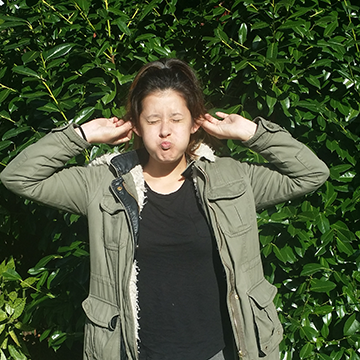
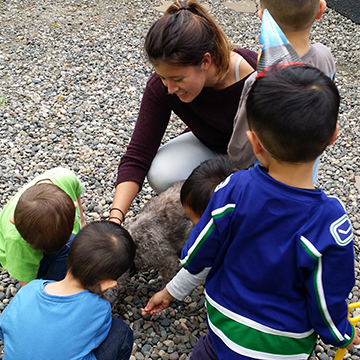
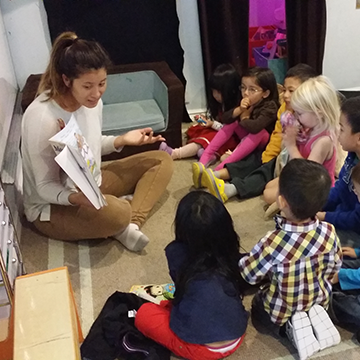
"Because of the dynamic experiences I go through everyday with children, I am able to learn more about myself, about child development and their evolving behaviours. "
I chose to be an Early Childhood Educator because children have always intrigued me in how they always know how to make everyone smile and laugh; they are always able to brighten even my worst days with the simple things that they do (whether they know it or not). Being surrounded by all these children every single day, I’ve grown to really appreciate how unique every child is in how they are able to learn and develop in such different ways from one another.
When I was younger, I would always go to my little sister’s soccer games and enjoyed playing with all her teammates’ younger siblings on the sidelines even more than watching the actual games themselves. Eventually, I started to work with children and I really enjoyed the close up interactions this provided me with. As more time passed, my grandpa approached me and said “Alison, you’re really great with children; why don’t you one day go to school to work with them professionally?” I t was at this point where I started to seriously consider a career in early childhood education. To this day, I thank my grandpa all the time for bringing to light this fabulous lifelong option and opportunity. Thanks to him I think I am so lucky to be in this ever expanding field and I really do enjoy myself every day waking up and looking forward to work every morning. Because of the dynamic experiences I go through everyday with children, I am able to learn more about myself, about child development and their evolving behaviours. I feel like there is always more to learn and that keeps everything interesting for me. Exploring different strategies to relay information in the centres is what drives me to continue doing what I do and I am always up for new challenges.
MISS H



"Children always surround me, and their positive energy is contagious."
"Wow…! He is so small and adorable! What can I do to make this baby smile?” I often thought when I played with my baby brother in my early childhood. My passion for early childhood education began at an early age. At the young age of a preschooler, I remember fondly taking care of younger ones through buddy programs, which included my younger brother. As I grew, I dedicated my time to research about early childhood education and the vast impact it can have on early learners. Since then, I embarked on a lifelong educational journey to become an Early Childhood Educator. Through my early childhood education program, I learned about the Reggio Emilia approach and its innovative curriculum. It changed my image of the child. Now, I see each child as a unique individual who is filled with imagination and endless possibilities. "
Inspiration by children
One day, a two and a half year old boy came up to me with a book about basic shapes. Despite the content looking quite simplistic to me, the boy, who was still learning how to read, started to tell me an exciting, bold and adventurous tale. He was pointing at the shapes in the book, and as he flipped the pages, he manufactured an amazing story involving a castle with knights and dragons. I was totally impressed by his creative imagination.
A day with children is always filled with curiosities and discoveries. After the boy created his story, he realized many things in our world are made out of various types of shapes. His eyes started to see shapes everywhere. He found shapes when we went on a nature walk, when he played puzzles, and when he read other picture books.
Inspired by his interest in shapes, we collected some short branches from our nature walk together. Back at school, I encouraged him to create his own shapes using the short branches on paper. He started to use a combination of shapes to create various items such as a house, bus, and car.
True to the Reggio Emilia approach, I began documenting his experience through photos and notes. Documentation is a wonderful way for parents to see what educators are doing at school with their children, and for educators to reflect and gain perspective for future activities. I put my documentation together into a learning story, which gave me a chance to reflect on what I saw. It was clear to me that I was most fascinated by this child’s thinking process and it motivated me to think about how I could extend his interest further. I posted my documentation on a wall panel for all the children in the class to see so they could revisit the experience. Through discussion with the children, it was decided that we extend our shapes interest into the city and we ended up building an entire city using various shapes. Rectangles for buildings, triangles for roofs, squares for stores and so much more! Following children’s interest is not always easy; however, I believe that a child’s interest is the best trigger for children to unleash their imagination and to learn and explore new things.
Being an Early Childhood Educator is such a wonderful career to me. Children always surround me and their positive energy is contagious. Moreover, I feel so privileged to be able to observe children’s development as they acquire basic concepts in our life. I find the process of struggle to solution so rewarding to see. Lastly, I understand and recognize that my position as an educator carries a huge responsibility, particularly since I believe that early childhood creates the base of children’s lives and gives great influence to their personality. I will always strive to improve myself to be a better teacher and educator.
MISS JOANNE MA
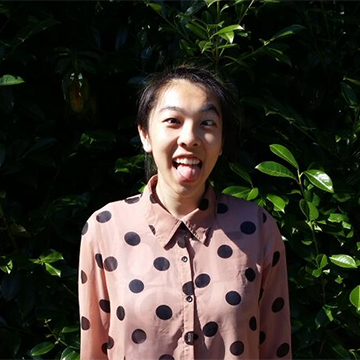
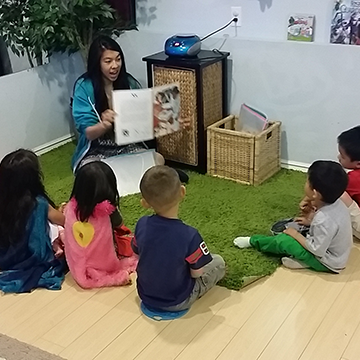
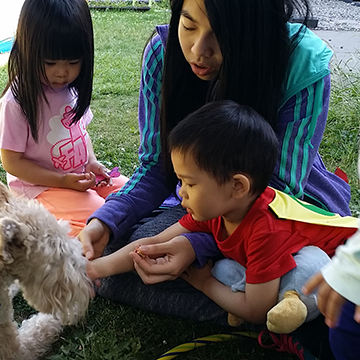
"When I observe children play and explore, I truly admire their passion and energy. "
Children try to push themselves out of their comfort zones and create theories of the world around them. I am always in awe of how quickly they can learn and apply themselves, and being able to witness and contribute to their journey is a large reason why I enjoy working as an early childhood educator.
The most impressive thing to me about working with children is their non-inhibited social ability. Children have such honesty and earnestness, and I can’t help but to feel inspired. I love that they are open and willing to talk about anything! On a day to day basis, I witness children openly speak to the people around them. They introduce themselves, ask questions about the other person’s life and are just genuinely kind and curious. I personally value these traits for myself and think that we adults could use a little more of these qualities in our own lives. Children consistently challenge & inspire the way I look at and engage with the world around me. Being around children reminds me about all of life’s simple pleasures.
A few years after I started working with children, I started to realize the actual impact I had on them. I once received a handmade card from a child whom I taught cooking classes to. It wrote, “Dear Joanne, me and my mom want to thank you for teaching me how to make avocado fries. I used to hate avocados, but now I love them! I will use my cooking skills to cook them every day. Yummy!” I felt proud of myself that I was able to teach and influence the child to be open to new possibilities. But mostly, I felt proud of the child who gained a new found interest/hobby. As a teacher at Aves, I want to inspire children just like how they inspire me. I love watching them apply concepts of what we have learned at school and observe how they start to make connections about the world around them. I will strive to provide them with all of my knowledge, so that I can give them life skills they can use for years.
What I look forward to most at Aves Early Education Centre is watching the children grow and prosper. As time flies by, I am most excited to witness the children gain their unique quirks and characteristics that form them into the wonderful individuals they are and becoming. I strongly believe that making great personal relationships is one of the most meaningful things in life. For me to be a source of education and encouragement for the children is something that I really value. I will always try my best to make learning exciting and relatable for the children, and I will always be there to lend a helping hand or listening ears.
MISS KAYOKO MATSUMOTO
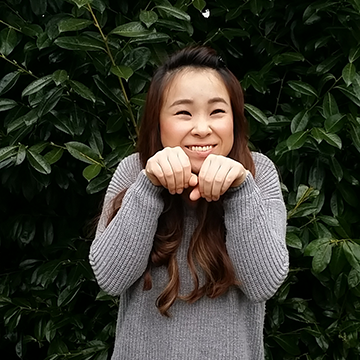
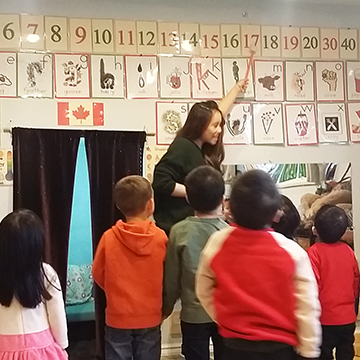
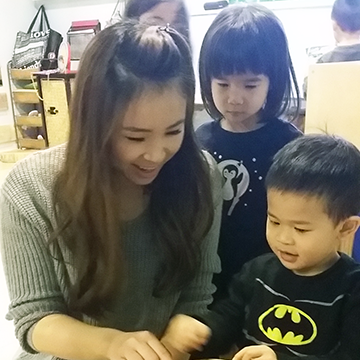
"Children’s energy levels and their creative imagination continuously inspire and motivate me to be a better educator."
When I was younger, I spent most of my early childhood in my hometown’s
childcare centre. Indeed, I was usually the first one to arrive and the
last one to leave. At this centre, I felt so comfortable and was always
excited to embark on new adventures, discover different elements in
nature, connect with others, and learn how to share and care for others.
The centre was truly like my second home. The thing I loved the most
about this centre were my teachers. They made such a huge impact on my
life and I consider them to be like my family. To this day, more than
20 years later, I still keep in touch with my teachers and share special
events that take place in my life with them. I even told them about my
new position at Aves! Whenever I reminisce about my childhood life, I
can still feel the feelings of excitement that filled my heart. I
consider it to be the most precious time in my life.
The reason I became an early childhood educator is because I want to
provide children with the same amazing experience I received from my
teachers while growing up. I am always amazed at the rate and capacity
children are able to learn at during their early years. “Mitsugo no
Tamashii Hyaku made” was the first topic we covered in university. In
English, it loosely translates to “What is learned in the cradle is
carried throughout life”. In other words, it suggests that human beings
learn and grow the most in the first three years of their lives. It
advocates the first three years of our lives are so important because
they basically form our morals and structures of our personality.
From birth until age 6, early learners gain knowledge and life skills
through their surrounding environment. A stimulating environment is one
that is multi-faceted, with various colours and shapes in the learning
facility, physical and educational activities that help brain
development, various hand-selected toys and tools for enhanced play, as
well as thoughtful and respectful classmates and kind, nurturing
teachers. All these elements in a child’s environment can make such a
huge impact on their development. I recognize and understand the
importance of providing such a multi-faceted environment. As such, I
want to help create an environment that is conducive to developing
children’s physical, emotional, cognitive, and social wellbeing. I am
particularly interested in helping children develop their ability to
self-regulate and their level of self-confidence. Given this knowledge,
my goal as a teacher at Aves is to help children reach their full
potential by using positive interactions as well as providing children
with a nurturing and caring environment that stimulates their
development.
I feel very lucky to be an early childhood educator and am so grateful
that I can support and see young children grow and develop. I am so
thankful that I can be involved with this magical time in their lives.
Children’s energy levels and their creative imagination continuously
inspire and motivate me to be a better educator. In this field, I know
I will always be learning and self-improving. I will constantly strive
to be a better teacher and person who can inspire and positively impact
children’s lives as my teachers did for me once before.